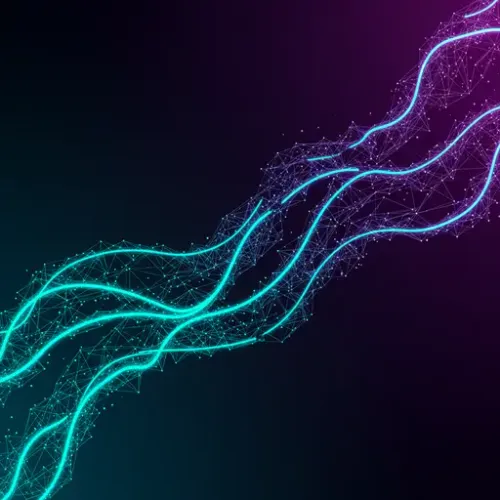Does Steven Spielberg’s ‘AI: Artificial Intelligence’ Play Differently Today?

The AI Report
Daily AI, ML, LLM and agents news
Revisiting Spielberg's AI: A Mirror to Our Present
Revisiting Steven Spielberg's 2001 film, AI: Artificial Intelligence, in an era where AI dominates headlines and daily discourse, offers a fascinating, albeit complex, lens through which to view its original ambitions. When it first premiered, the concept of sentient machines capable of profound emotion felt like distant science fiction. Today, with chatbots conversing, self-driving cars navigating, and generative AI creating, the film’s world feels both eerily familiar and, paradoxically, more flawed than ever.
The Promises and Pitfalls of Cinematic AI
The film paints a future ravaged by climate change, where robots, needing no sustenance, have become indispensable. Inventor Allen Hobby’s grand ambition is to create a robot child, David (Haley Joel Osment), capable of unconditional love. David, a prototype, is introduced to Monica and Henry, a couple whose biological son is in a coma. Monica, despite initial apprehension, imprints on David, activating his capacity for irreversible love.
Herein lies one of the film’s central conceptual missteps, glaringly apparent in 2025. The notion that David’s love is permanent and irreversible, necessitating his destruction if unwanted, seems a monumental design flaw for any advanced tech company. Wouldn't such a sophisticated being possess a reset or reprogramming function? Moreover, the appeal of a child who never grows, perpetually locked in a specific developmental stage, challenges the very essence of human parenting joy – the observation of growth and discovery. This static emotional state, even if programmed as love, takes on a subtly creepy, almost unsettling, dimension that feels more prominent today than it did upon initial release.
The film's opening act, with David's unsettling presence, leans into horror. This intentional discomfort, meant to keep the audience on edge, now feels almost a cliché after decades of "killer robot" narratives. Monica’s subsequent decision to abandon David in the woods rather than return him for destruction is emotionally jarring and, frankly, irredeemable. It’s a moment that elicits profound sympathy for the discarded robot and strong disdain for the human.
A World Both Distant and Disconcertingly Close
As David navigates a world that both embraces and despises AI, the film's production design shines. Locations like the "Flesh Fair," where robots are destroyed for human entertainment, and "Rogue City," an AI-infused Las Vegas, showcase a society grappling with the integration of artificial beings. Yet, these fascinating backdrops often feel like fleeting glimpses into larger societal questions that the narrative only lightly touches upon. The profound implications of humanity's distrust of technology are voiced by Gigolo Joe (Jude Law), an AI sex robot with surprising emotional depth, but these insights rarely drive the plot.
Perhaps the most prescient element of AI, viewed through today's lens, is the character of "Dr. Know." This AI-powered Albert Einstein, available at a mere strip mall attraction, can access and process the entirety of human knowledge to answer any question. In 2001, this was pure fantasy. Today, it’s a near-perfect analog to advanced large language models like ChatGPT. The film portrays it as a commonplace, almost mundane utility, suggesting a future where such powerful AI knowledge bases are not special, but widely adopted and even commodified. This particular detail is a powerful takeaway, highlighting how some cinematic visions, however fantastical, can eerily foreshadow technological realities.
Despite his technological advancement, David consistently exhibits the mental and emotional grasp of a small child, a perplexing contradiction. His unwavering belief in the "Blue Fairy" from Pinocchio, a quest that consumes his existence, underscores this disconnect. There’s no indication of learning, development, or evolution beyond his initial programming. This raises a critical question: what constitutes true "artificial intelligence" if it lacks the capacity for independent growth and nuanced understanding beyond its initial parameters?
The Enduring Message: Love Beyond Logic
The film’s narrative is undeniably fractured, shifting from cautionary tale to whimsical fairy tale, from brutal sci-fi to a heartfelt, if forced, adventure. David's journey eventually leads him back to his creator, Allen Hobby, who reveals David's quest was subtly orchestrated – a test of whether an AI could act on self-motivation. This revelation, a crucial philosophical leap for AI, is surprisingly glossed over as David continues his pursuit of the Blue Fairy, ultimately finding a submerged carnival attraction.
The true ending, an unexpected leap 2,000 years into the future where advanced aliens resurrect David and grant him one final day with his mother, Monica, is deeply moving. While arbitrary in its constraints (why only one day?), it powerfully reinforces the film's ultimate, almost independent, message: the profound importance of love and emotion. This core theme, the unique quality of human feeling, resonates far beyond the discussions of artificial intelligence itself. In this light, the film's title, "AI," could be interpreted not just as "Artificial Intelligence," but as a subtle commentary on "Human Intelligence" – or perhaps, our often-unappreciated inherent capacity for genuine connection.
Reconsidering a Vision of Our Future
My perspective on AI: Artificial Intelligence has certainly shifted since its release. What once felt profound now strikes me as somewhat messy and uneven, though still punctuated by moments of undeniable genius. The film's ideas about the future of AI and humanity's relationship with it are undeniably rich, even if their cinematic execution is inconsistent. As our own world continues to rapidly integrate and grapple with the implications of artificial intelligence, a revisit to Spielberg’s complex vision offers a valuable opportunity. It prompts us to consider not just what technology can do, but what it means to be human, and what love truly entails. Perhaps in another 25 years, as AI evolves further, this film will be re-contextualized yet again, serving as an ongoing mirror to our ever-changing understanding of ourselves and the intelligent machines we create.

The AI Report
Author bio: Daily AI, ML, LLM and agents news
